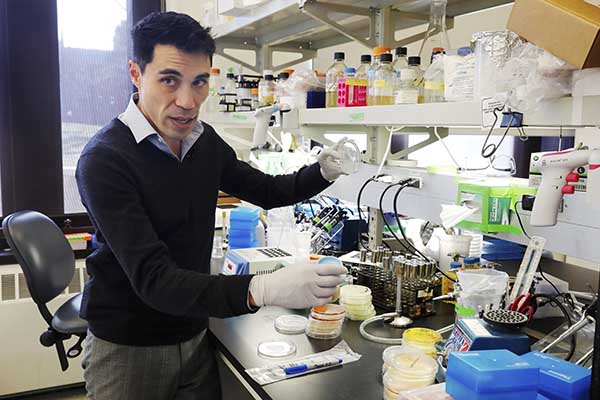February 2020 Current Events: Science and Technology News

US News | World News | Disaster News
The world is a very busy place, and it's hard to stay on top of everything. Infoplease has got you covered. Here are the world news events you need to know so far for February 2020:
- Solar Orbiter Completes Preparation
- Apple Fined for Slowing Down iPhones
- New Dinosaur Found in Canada
- Powerful Antibiotic Discovered
- Scientists Find 1-Billion-Year-Old Fossil
Solar Orbiter Completes Preparation

On February 1, the Solar Orbiter was prepared for its launch which is planned for next weekend. The Solar Orbiter is an attempt by Europe to learn more about the sun. (BBC)
Photo Source: AP Photo/CTK, Radek Petrasek
Apple Fined for Slowing Down iPhones

On February 7, Apple was fined $27 million for deliberately slowing down older iPhone models without notifying consumers. Apple admitted to doing this in 2017, but the company claimed it was to prolong the battery life of older models. The court case was just now resolved. (BBC)
Photo Source: AP Photo/Tony Avelar
New Dinosaur Found in Canada

On February 11, the bones of a new Tyrannosaurus named “Reaper of Death” were found in Canada. The dinosaur is suspected to have lived over 80 million years ago, making it the oldest tyrannosaurus to live in North America. (BBC)
Photo Source: AP Photo/The Canadian Press, Andrew Vaughan
Powerful Antibiotic Discovered

On February 21, scientists used AI to help discover an antibiotic that may help fight powerful bacteria and drug resistance. Scientists claimed the new discovery can kill up to 35 deadly bacteria. (BBC)
Photo Source: AP Photo/Richard Drew
Scientists Find 1-Billion-Year-Old Fossil

On February 26, paleontologists discovered one-billion-year-old microfossils. Scientists believe this discovery could help us understand the origins of plant life on Earth. (CNN)
Photo Source: AP Photo/Paul White







